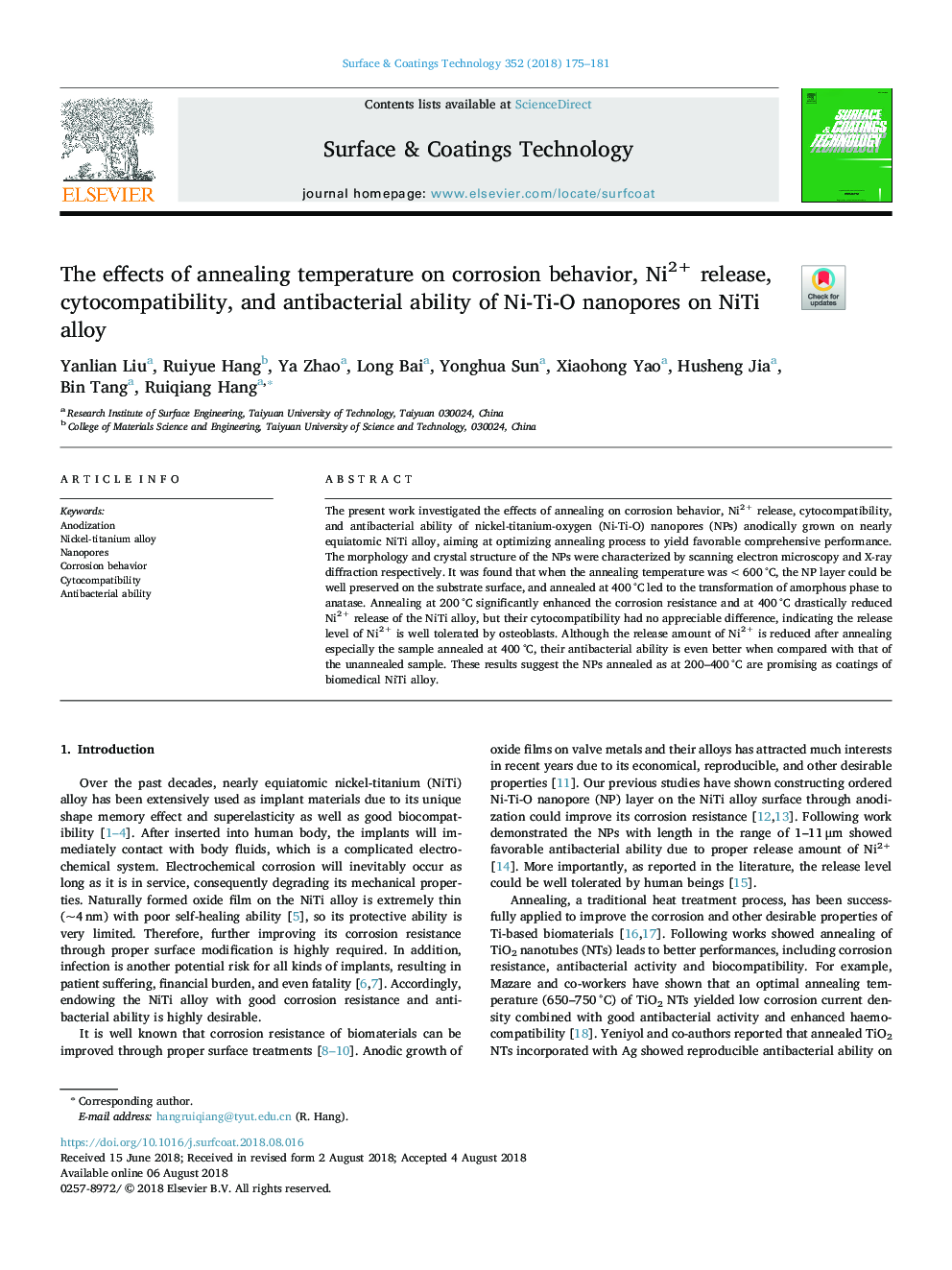| Article ID | Journal | Published Year | Pages | File Type |
|---|---|---|---|---|
| 8023195 | Surface and Coatings Technology | 2018 | 7 Pages |
Abstract
The present work investigated the effects of annealing on corrosion behavior, Ni2+ release, cytocompatibility, and antibacterial ability of nickel-titanium-oxygen (Ni-Ti-O) nanopores (NPs) anodically grown on nearly equiatomic NiTi alloy, aiming at optimizing annealing process to yield favorable comprehensive performance. The morphology and crystal structure of the NPs were characterized by scanning electron microscopy and X-ray diffraction respectively. It was found that when the annealing temperature was <600â¯Â°C, the NP layer could be well preserved on the substrate surface, and annealed at 400â¯Â°C led to the transformation of amorphous phase to anatase. Annealing at 200â¯Â°C significantly enhanced the corrosion resistance and at 400â¯Â°C drastically reduced Ni2+ release of the NiTi alloy, but their cytocompatibility had no appreciable difference, indicating the release level of Ni2+ is well tolerated by osteoblasts. Although the release amount of Ni2+ is reduced after annealing especially the sample annealed at 400â¯Â°C, their antibacterial ability is even better when compared with that of the unannealed sample. These results suggest the NPs annealed as at 200-400â¯Â°C are promising as coatings of biomedical NiTi alloy.
Keywords
Related Topics
Physical Sciences and Engineering
Materials Science
Nanotechnology
Authors
Yanlian Liu, Ruiyue Hang, Ya Zhao, Long Bai, Yonghua Sun, Xiaohong Yao, Husheng Jia, Bin Tang, Ruiqiang Hang,
